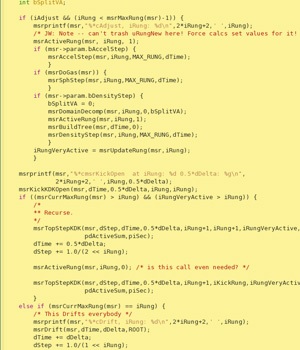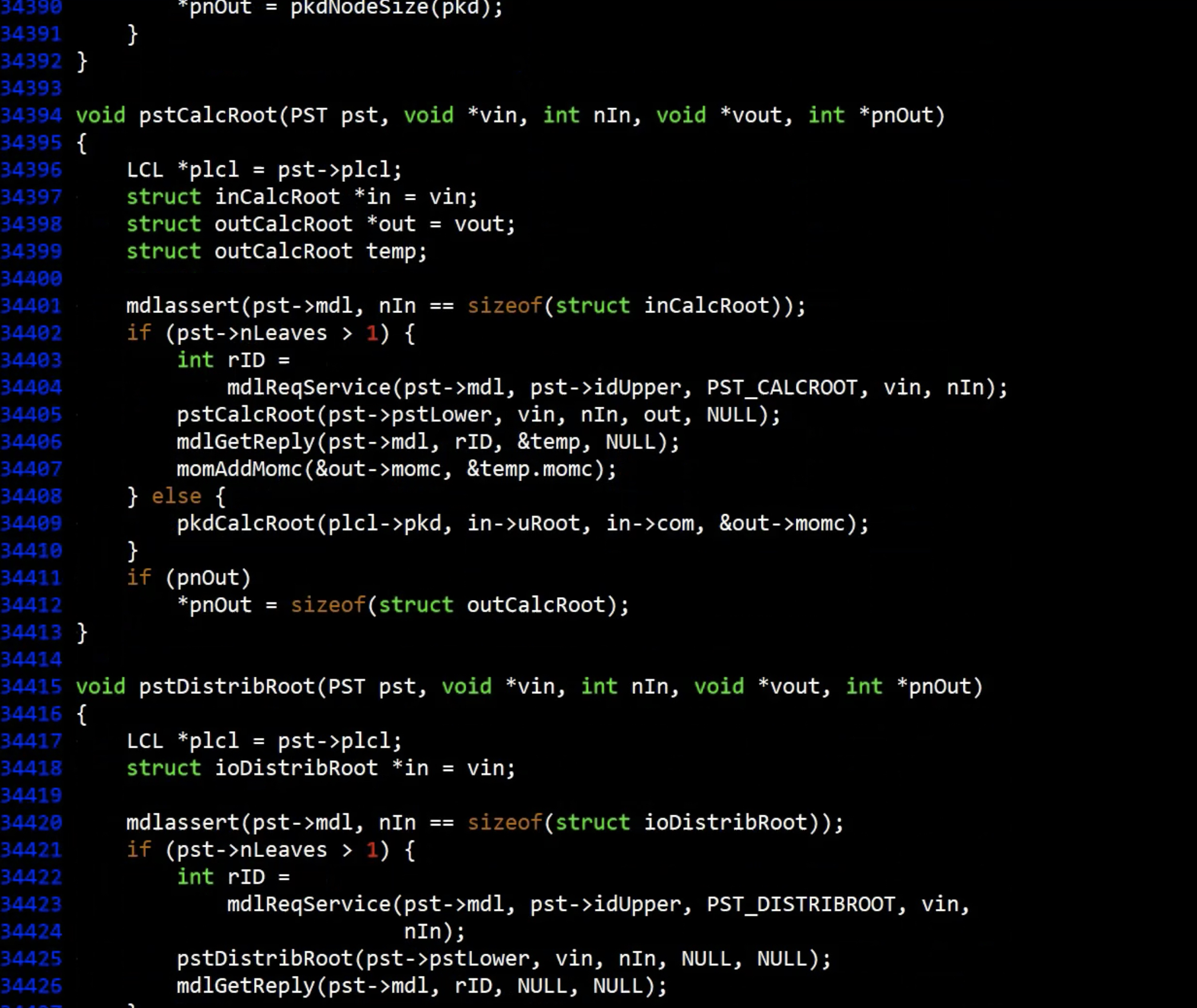The PKDGRAV3 dark matter simulation code
Simulating the dark matter in the Universe requires an enormous amount of computing power on the largest computers available to us on Earth.
The computer code to do this must aim to use every electronic part of the hardware of these machines as efficiently as possible. The PKDGRAV3 simulation code, shown here, is 50’000 lines of C-code which takes maximal advantage of the computing and memory resources was used to perform this record setting simulation on Piz Daint (Swiss Nation Supercomputing Center, Lugano) in 2016. It is referred to as the 'Euclid Flagship Simulation' and is a corner stone for the mission. The PKDGRAV3 code was written by Joachim Stadel and Doug Potter at the Institute for Computational Sciences, University of Zurich.
Dr. Joachim Stadel from the Institute for Computational Sciences explores the formation of planets and galaxies, using supercomputers amongst other things. More
Doug Potter is a high performance computing specialist. Together with Joachim Stadel he received the "Euclid Star Prize" in June 2018 for their work on the Flagship Simulation.
Related contributions

